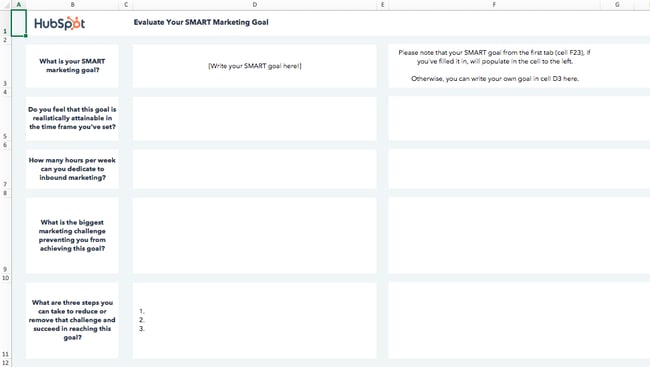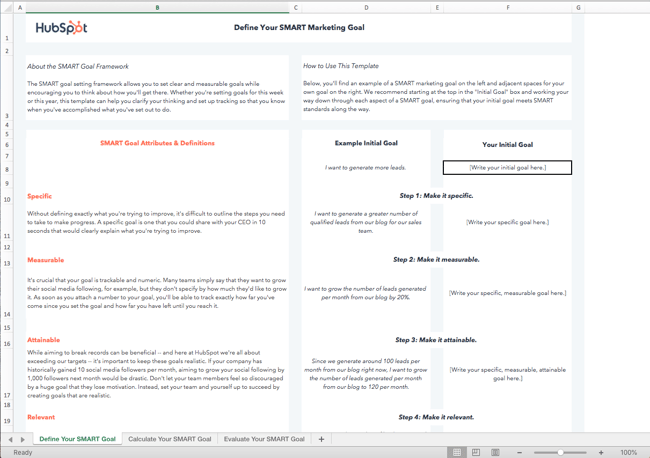How to Write a SMART Goal [+ Free SMART Goal Template]

Work can feel like a never-ending grind when you’re not chasing a clear goal. A SMART goal template can help you clarify your motivations, set a clear direction for you and your team members, and ensure you’re able to celebrate the wins when they come along.
But what exactly is a SMART goal, and how does it differ from a regular goal?
To help you write SMART goals, we’ve created a free template with all the tools you need to get started.
What is a SMART goal?
The letters of SMART stand for:
- Specific
- Measurable
- Attainable
- Relevant
- Time-Bound
The SMART acronym is a framework that will enable you to write goals that drive greater impact. Write goals with each of these aspects in mind, and you’ll be able to quantify how far you’ve come and how far you have left to go against your goal.
When you reach the milestone you articulated in your SMART goal, you’ll be able to celebrate knowing that you achieved something tangible and impactful.
To make setting a SMART goal simple, we’ve created a free, downloadable SMART goal setting template.
I’ll walk through the template below as we discuss each aspect of a SMART goal.
I’d suggest downloading the template yourself to follow along with this blog post. However, before anything else, let’s dive into the importance of each aspect of the SMART acronym.
What does each aspect of the SMART acronym mean?
While we run through the definition of each aspect of the SMART goal framework, we’ll apply the framework to a real-world example.
Let’s start with a basic, non-SMART goal as our example — “I want to get fitter.”
1. Specific
Goal setting is often associated with striving toward our highest aspirations, and reaching those aspirations can seem daunting. Specificity helps us determine the path between where we are and where we want to be.
- Ambiguous goal: “I want to get fitter.”
There are innumerable ways to get fitter, and everyone has their own definition of fitness. For instance, do you want to lose weight? Do you want to perform more push-ups? Or do you want to cut a minute off your mile time?
When a goal isn’t specific, there is no way to tell whether your actions will help you achieve that goal or not. If your specific fitness goal is to increase the number of push-ups you can do, then following a running plan will not be very helpful in getting you to your true goal.
- Specific goal: “I want to be able to do more push-ups.”
A specific goal makes your next steps clearer or, at the very least, narrows down the next steps you are going to take.
Make your goal more specific and type it into the cell under Step 1.

2. Measurable
When a goal is …read more
Source:: HubSpot Blog










